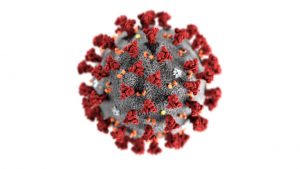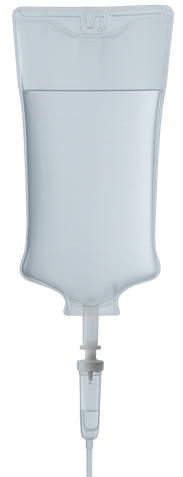Melatonin is a Key Recommendation in COVID-19
 There are a number of important nutritional considerations in both the prevention and treatment of COVID-19. There is one that really stands out to me that has not received the same sort of promotion as others like vitamin D and zinc. The title of this newsletter gives it away. I am referring to melatonin as a critical supplement in the battle against this virus. It makes sense, melatonin exerts significant immune enhancing effects and patients at highest risk, e.g., the elderly and those with high blood pressure, type 2 diabetes, and various other chronic diseases are all associated with melatonin deficiency. Preliminary evidence discussed in this newsletter will highlight the use of melatonin as safe and potentially valuable in the prevention and treatment of COVID-19.
There are a number of important nutritional considerations in both the prevention and treatment of COVID-19. There is one that really stands out to me that has not received the same sort of promotion as others like vitamin D and zinc. The title of this newsletter gives it away. I am referring to melatonin as a critical supplement in the battle against this virus. It makes sense, melatonin exerts significant immune enhancing effects and patients at highest risk, e.g., the elderly and those with high blood pressure, type 2 diabetes, and various other chronic diseases are all associated with melatonin deficiency. Preliminary evidence discussed in this newsletter will highlight the use of melatonin as safe and potentially valuable in the prevention and treatment of COVID-19.
Melatonin is a compound that is produced by the brain’s pineal gland that is well-known as a natural sleep aid. Sleep is obviously critical to proper immune function, but melatonin’s immune enhancing effects go well beyond helping people sleep better. Melatonin is very important in protecting the cells that line the respiratory and gastrointestinal tract from infection and damage. In fact, these cells produce more than 400 times the amount of melatonin each day as the brain does. Melatonin does not directly kill viruses, but it does have indirect anti-viral actions via its effects on the immune system. It also works closely with vitamin D3 in regulating the immune response.
In the early stages of COVID-19 infection, the virus stimulates our immune system through a messenger system using compounds known as cytokines and chemokines. These compounds are manufactured by immune cells that line the respiratory and gastrointestinal tract. As they engulf and process the virus, they use these chemicals to mount an immune response. In the process, however, the response can be out of control and produce what is known as the “cytokine storm” or severe inflammation. It is one of the features of COVID-19 in the lungs that leads to severe damage and eventually the destruction of lung tissue. Melatonin may help prevent this damage.
Melatonin’s effects on cytokine levels in COVID-19 patients has not been determined, but it has been shown that in subjects with other inflammatory conditions, melatonin supplementation lowered circulating cytokine levels. For example, in one double-blind study in patients with type 2 diabetes, an 8-week oral intake of melatonin at a dosage of 6 mg per day produced a significant decrease in serum levels of key cytokines (e.g., IL-6, TNF-α) and also lowered C-reactive protein levels (a blood marker of inflammation). The same sort of results have been shown in patients with inflammation. In fact, a recent meta-analysis of a total of 22 double-blind clinical trials showed that melatonin supplementation reduces cytokine levels, namely IL-6 and TNF-α.
New Data:
Two recent detailed reviews of the available science on melatonin, including clinical data, led researchers to offer the following conclusions:
“The possible beneficial effects of melatonin as adjuvant use in COVID-19 in anti-inflammation, anti-oxidation, immune response regulation has been repeatedly demonstrated in respiratory disorder models induced by infections and associated complications. Melatonin has a high safety profile. Although the direct evidence of melatonin application in COVID-19 is unclear, both its use in experimental animal models and in studies on humans has continuously documented its efficacy and safety and its use by COVID-19 patients predictably would be highly beneficial.”1
“The current COVID-19 pandemic is one of the most devastating events in recent history….by using the safe over-the-counter drug melatonin, we may be immediately able to prevent the development of severe disease symptoms in coronavirus patients, reduce the severity of their symptoms, and/or reduce the immuno-pathology of coronavirus infection on patients’ health after the active phase of the infection is over.”2
Commentary:
 Melatonin is safe and it appears that in people at high risk for COVID-19, melatonin deficiency is common. Here is some additional food for thought. Children generally have much higher levels of melatonin. Could that be another protective factor and explanation why they don’t suffer from COVID-19 as much as older adults? And, what about the fact that these coronaviruses don’t seem to affect bats that much. Bats are nocturnal animals that possess relatively high levels of melatonin. Does that high level of melatonin protect them against these coronaviruses? It is possible.
Melatonin is safe and it appears that in people at high risk for COVID-19, melatonin deficiency is common. Here is some additional food for thought. Children generally have much higher levels of melatonin. Could that be another protective factor and explanation why they don’t suffer from COVID-19 as much as older adults? And, what about the fact that these coronaviruses don’t seem to affect bats that much. Bats are nocturnal animals that possess relatively high levels of melatonin. Does that high level of melatonin protect them against these coronaviruses? It is possible.
Of course, we won’t really know the true benefits of melatonin until there is data in humans. There is a double-blind study in process with melatonin and severe COVID-19, but it could be awhile before that study is published. What I see right now is a strong rational and a very strong safety profile for using melatonin in both the prevention and treatment of COVID-19. So, I am encouraging anyone over the age of 60 to take 3-5 mg of melatonin 30-45 minutes before going to bed as a preventive measure. And, if you are positive for SARS-CoV-2, take 10 mg. It just makes sense given the possible benefit and the lack of harm with this recommendation.
References:
- Zhang R, Wang X, Ni L, et al. COVID-19: Melatonin as a potential adjuvant treatment. Life Sci. 2020;250:117583.
- Shneider A, Kudriavtsev A, Vakhrusheva A. Can melatonin reduce the severity of COVID-19 pandemic? Int Rev Immunol. 2020;1-10.








